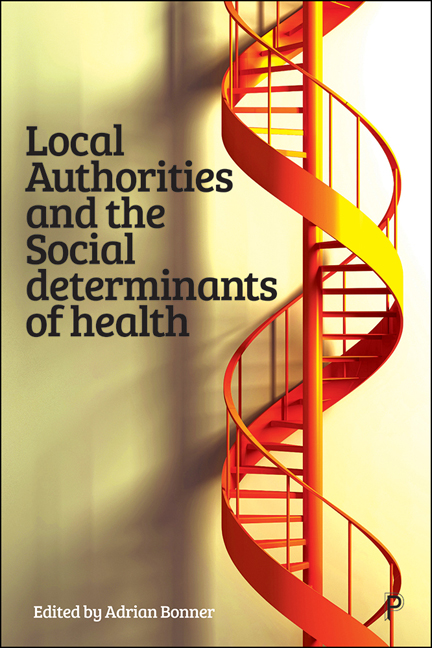Book contents
- Frontmatter
- Dedication
- Contents
- List of Figures, Tables and Boxes
- Notes on Contributors
- Acknowledgements
- Foreword
- Summary
- Introduction: Key Sociopolitical Changes Affecting the Health and Wellbeing of People
- Part I Health, Social Care and Community Wellbeing
- Part II The Role of Local Authorities in Promoting Health and Wellbeing in the Community
- Part III Local Authority Commissioning
- Part IV The Third Sector
- Part V Socio-Economic Political Perspectives
- Conclusion
- Appendix: COVID-19 Timeline
- Index
17 - Mutuality in the Public, Private and Third Sectors
Published online by Cambridge University Press: 25 March 2021
- Frontmatter
- Dedication
- Contents
- List of Figures, Tables and Boxes
- Notes on Contributors
- Acknowledgements
- Foreword
- Summary
- Introduction: Key Sociopolitical Changes Affecting the Health and Wellbeing of People
- Part I Health, Social Care and Community Wellbeing
- Part II The Role of Local Authorities in Promoting Health and Wellbeing in the Community
- Part III Local Authority Commissioning
- Part IV The Third Sector
- Part V Socio-Economic Political Perspectives
- Conclusion
- Appendix: COVID-19 Timeline
- Index
Summary
Introduction
This chapter explores the concept of mutuality and the ways in which it may be applied to the social determinants of health in local government. The chapter attempts two things: first, to set out the scope of the concept and its potential applications; secondly, to examine these applications (relative to alternative options) through a novel heuristic framework and brief analysis of how mutuality in this context has evolved over time.
Mutuality is defined broadly in the Oxford English Dictionary as the sharing of a feeling, action or relationship between two or more parties, upon which cooperation is based. In turn, cooperation may be defined as ‘acting together, in a co-ordinated way, in social relationships, in the pursuit of shared goals, the enjoyment of the joint activity, or simply furthering the relationship’ (Argyle, 1991, p 15). Meanwhile, coordination is considered here through the lens of governance, or ‘the process of steering for collective action with respect to an issue in private and public affairs’ (Briassoulis, 2019, p 419; author's emphasis). In this formulation, mutuality provides a basis for cooperation, and cooperation works reciprocally to renew mutuality. This is particularly important when cooperation provides a clear basis for coordinated activity (relative to alternative bases of, say, coercion or competition; see Figure 17.1).
With regard to governance, different expressions of mutuality and cooperation arise, but are often conflated, in the literature. These include orthodox notions of governance as a coordinative structure (for example, adversarial, managerial, collaborative); modes of governance as different logics of coordination (for example, hierarchy, market, network); or governance arrangements as specific forms of organisational structure (for example, public–private partnerships, cooperatives, community organisations) (Lelievre-Finch, 2010). Such notions of governance may also be applied in different contexts, whether spatial (for example, global, national, local or urban, rural, coastal); sectoral (for example, health, social care, housing, education); or issue-based (for example, poverty, lifestyle, lifecourse). In each case, the literature also often assesses the quality of governance (for example, as ‘good governance’ or otherwise) (Briassoulis, 2019).
This chapter examines mutuality from these different perspectives for the social determinants of health in local government. There is no presumption here that the invocation of mutuality per se results in an inherently superior quality of governance.
- Type
- Chapter
- Information
- Local Authorities and the Social Determinants of Health , pp. 319 - 342Publisher: Bristol University PressPrint publication year: 2020



